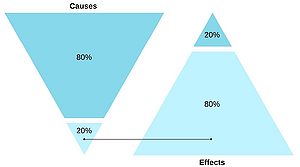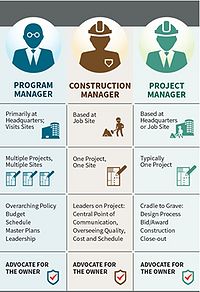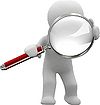Roles and responsibilities of program manager
Roles and responsibilities of program manager are very complex. For that reason, it is difficult to define them. They can vary from managing multiple projects to managing multiple projects with operational responsibilities, additionally to being accountable for profit or cost targets based on business strategy. Moreover, a program manager has the main supervision of the scope and status of several related projects at once which all together contain the program in order to ensure that the program goals are achieved. This accumulation of responsibilities of a diversity of projects and operations means that the program manager should be able to balance business targets and project/operational performance. His decisions are both tactical and strategic in nature. The program manager must establish an environment that allows the project managers to complete their projects successfully. In more detail, the main leadership duty is to bring more clarity to the team. Occasionally, the project management office (PMO) may not have sufficient insight of the risk, issues, requirements, design or solution and the clarity that is given from them. In that case, the program manager may be well placed to accept calculated risk and then define clarity in his own terms or to provide this insight by actively seeking out such data from the project managers although in large and/or complex projects, a specific role may be required. However, this insight arises, the program manager needs this in order to be confident that the overall program goals are achievable. [1]
Contents |
Big Idea
Origin of Program Manager
A program manager is first and foremost a leader, who delivers a business strategy that requires multiple coordinated projects. Furthermore, he\she can be considered as a “super” project manager. His\her roles focus mainly on operational, because he\she is responsible for planning and supervising the successful completion of the program. Last but not least, the program manager should have previously multiannual experience of beeing project manager for large and complex projects. [2]
Roles and responsibilities
Some of these functions are the coaching and developing the employees either the existing or new ones, decision-making, resolution of performance problems, evaluation of performances,
- Planning/scheduling (Daily program management throughout the program life cycle;) – Project management tools allow you to plan and delegate work all in one place with tasks, sub-tasks, folders, templates, workflows, and calendars
- Planning: a road-map for the program - Planning the overall program and monitoring the progress;
- Collaboration - Use project management tools to assign tasks, add comments, organize dashboards, and for proofing & approvals.
- Coordinating the projects and their interdependencies;
- Managing stakeholders’ communication;
- Documentation – Avoid missing files with file management features: editing, versioning, & storage of all files.
- Evaluation – Track and assess productivity and growth through resource management & reporting
- Governance: the health and progress of the program
- Alignment: vision, goals and objects of the program
- Assurance: verify and validate the program
- Management: review and report on the project
- Integration: optimizing performance across the program
- Finances: tracking costs of the program - Managing the program’s budget;
- Infrastructure: allocating resources of the program
- Improvement: assessing performance of the program
- Defining the program governance (controls);
- Managing risks and issues and taking corrective measurements;
- Managing and utilizing resources across projects;
- Aligning the deliverables (outputs) to the program’s “outcome” with the aid of the business change manager; and
- Managing the main program documentations such as the program initiation document.
- Accountable to executive sponsors for schedule, budget, and quality of all program elements.
- Leads high-level sessions for program plan and schedule development.
- Reviews/approves project plans for conformance to program strategy and program plan and schedule.
- Acts as the communications conduit to executive sponsors and program steering committee and conducts periodic briefings/status updates.
- Escalates decisions to executive sponsors as necessary.
Application
Skills\Behaviors
In order a program manager to accomplish all his\her roles and responsibilities should have some skills\behaviors. A lot of surveys have be carried out about the behaviors of a successful Program Manager and they resulted that although knowledge about business is significant, there is more importance on his\her program management skills and the most crucial of them are the following four policies:
1. First of all a Program manager has to see the organization strategically, that means:
- Strategic thinking to plan and anticipate future implications, thinking broadly and understanding the long term impacts of decisions. Moreover, is *:*The organizational awareness – identifying interpersonal and group dynamics; being in tune with and adapting to the organizational culture
- Leading change – instigating innovation and constructive change; helping others work through change
2. Another significant behavior is to understanding how to navigate the organization toward the future:
- Judgment – analyzing situations effectively and making sound decisions confidently
- Goal driven – setting and achieving short and long term objectives
- Driving results from two perspectives – delivering results personally by meeting commitments and achieving goals - achieving business objectives through others by holding people accountable
3. Working well with others:
- Communicative – expressing ideas clearly and listening attentively to others
- Collaboration
- Building trust – inspiring trust and credibility with others, maintaining confidences and keeping commitments
- Integrity – being forthright, honest and demonstrating ethical standards
4. Critical Thinking
5. Finance
6. Project Management
Tools
- Dashboard
- Gantt Chart
- Task Management
- Reporting
- Timesheets
- Planning
- SWOT analysis diagram
- Stakeholder matrix
- Cause and effect diagram
- Risk map
- Decision tree
- Radar chart
Comparison with project manager

Program management is often defined as the next higher organizational hierarchy level over project managers. Program managers are often defined as the interface between higher management and operational-level execution of a company's tasks and in more general as the next higher organizational hierarchy level over project managers. (e.g., Pellegrinelli, 2002).
A program was defined as a set of projects managed together in order to achieve a higher-level common scope, that will be impossible if each of these projects acts alone. [4] Frequently, the processes of projects and programs are described as being similar in nature due to their close link, although they are different in detailed level. [5] For that reason, the differences of these two concepts are presented. The main difference between a program manager and a project manager can be described by two: creation and compliance. The former one is responsible for creating the business environment culture and the project manager should comply with. Furthermore, the project manager's responsibilities are based on the triptych of time, cost, and scope of the project. On the other hand, the program manager is judged not only on these three subjects but also on a level that is cumulative for all the projects and operations within the program. This summation of responsibilities for a variety of projects and operations means that the program manager should carry out frequent trade-offs between business targets and project/operational performances. Moreover, program management decisions have basically strategic character. The strategy aspects must take into account multidimensional impacts beyond the short-term deliveries of the projects. In contrast with the project manager, who should complete and deliver projects within the time schedule and based on the instructions set by the program manager. To sum up, the project manager should focus on deliveries and execution of the projects whereas the program manager is also responsible for the overall organization and efficacy of the program over the long-term. [6]
Example

Big construction companies often undertake complicated projects, such the construction of metro. In this case, the program manager has the largest portfolio, which includes multiple projects on multiple sites and the program manager should be responsible for all the metro stations. Program managers have the overarching control, budget and schedule of a program. If the owner is not an expert in facility design and construction, the program manager provides leadership in this field. He cooperates with the stakeholders, including the client, the superintendent, and district officials. Moreover, in this example, the program manager defines the project managers each of them has to manage work on one of the metro stations. They are responsible for pre-design, design process, construction, integration and delivery of the project. In recent years, the construction manager has been joined as a member to the project-process. They are are the most appropriate to provide important knowledge during the design and construction phase.
How they can coordinate together:
The most critical thing is in every construction program, each manager has a distinct set of responsibilities and the clearer is for each of them what exactly are his or her roles on a project, the better result will come out. In more detail, the responsibilities of construction manager focus only on site-works, dealing directly with the contractor, project and program managers. The program manager works basically from an office and visits the different sites, if required. About the project manager, he\she has to be based either at office or the construction site.
The same philosophy applies to smaller and also larger construction programs involving multiple projects, such as airports.
Limitations
Reference
- ↑ .F.John Reh. November 26, 2017 ‘The Role and Responsibilities of a Manager’,[1]
- ↑ .Zein Omar. January 1, 2010 ‘Roles, responsibilities, and skills in program management’,[2]
- ↑ .Lynda Carter, Kristin Tull and Donna VanRooy. ‘Key Leadership Behaviors Necessary to Advance in Project Management’, ‘Project/Program Management Research’ [file:///C:/Users/nikol/Downloads/Key%20Leadership%20Behaviors%202013%20BW%20PRADCO.pdf]
- ↑ .Pellegrinelli, S. 2002, ‘Shaping context: The role and challenge for programmes. International Journal of Project Management, ch.20, p.229-233’,
- ↑ .Blomquist Tomas, Müller Ralf. January 2004, ‘Program and portfolio managers’, ‘program management’ [3]
- ↑ .James T Brown. 2008, ‘The Handbook of Program Management: How to Facilitate Project Success with Optimal Program Management ’
- ↑ .Christopher Dunne. December 2, 2015 ‘Blog: Drive to Discover’, ‘Construction Management, Program Management and Project Management: What's the Difference?’ [4]








